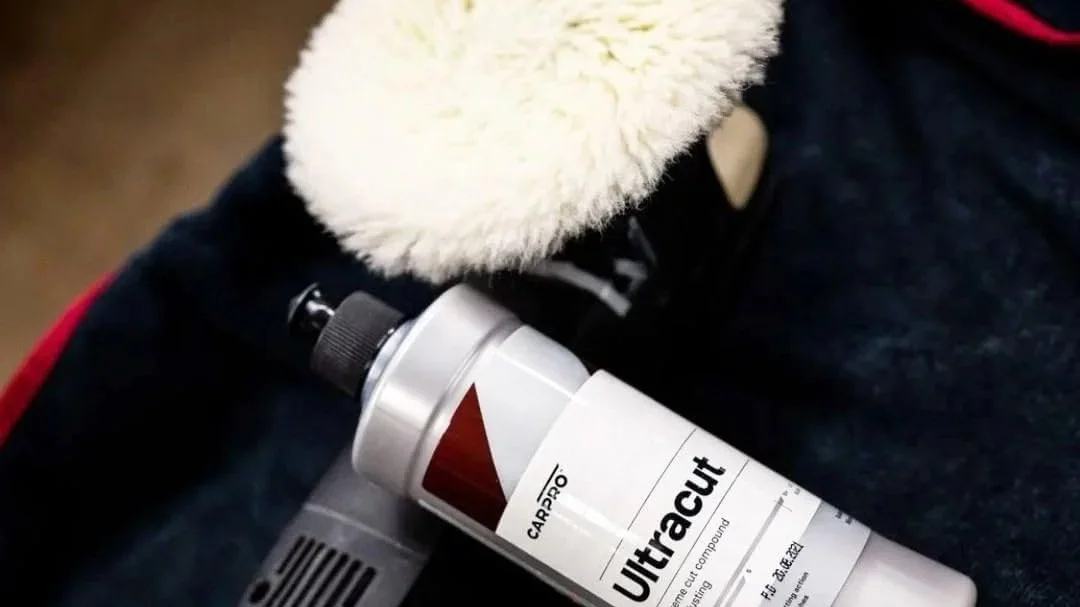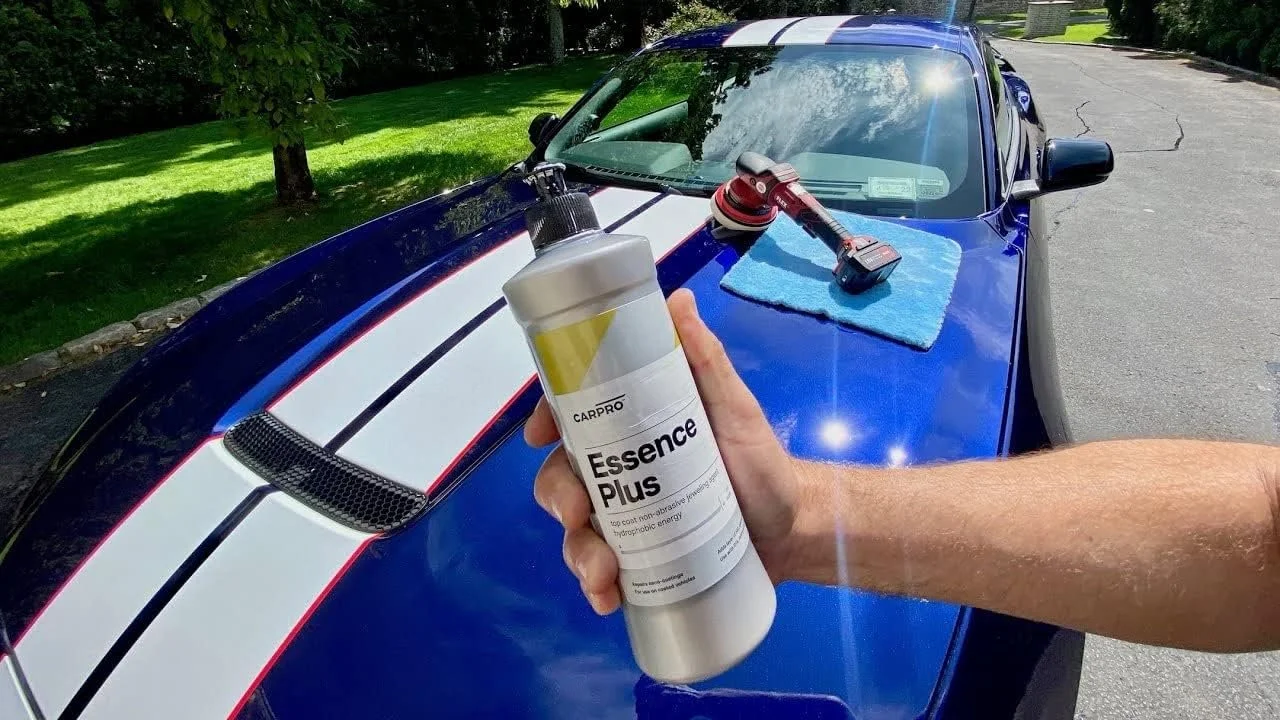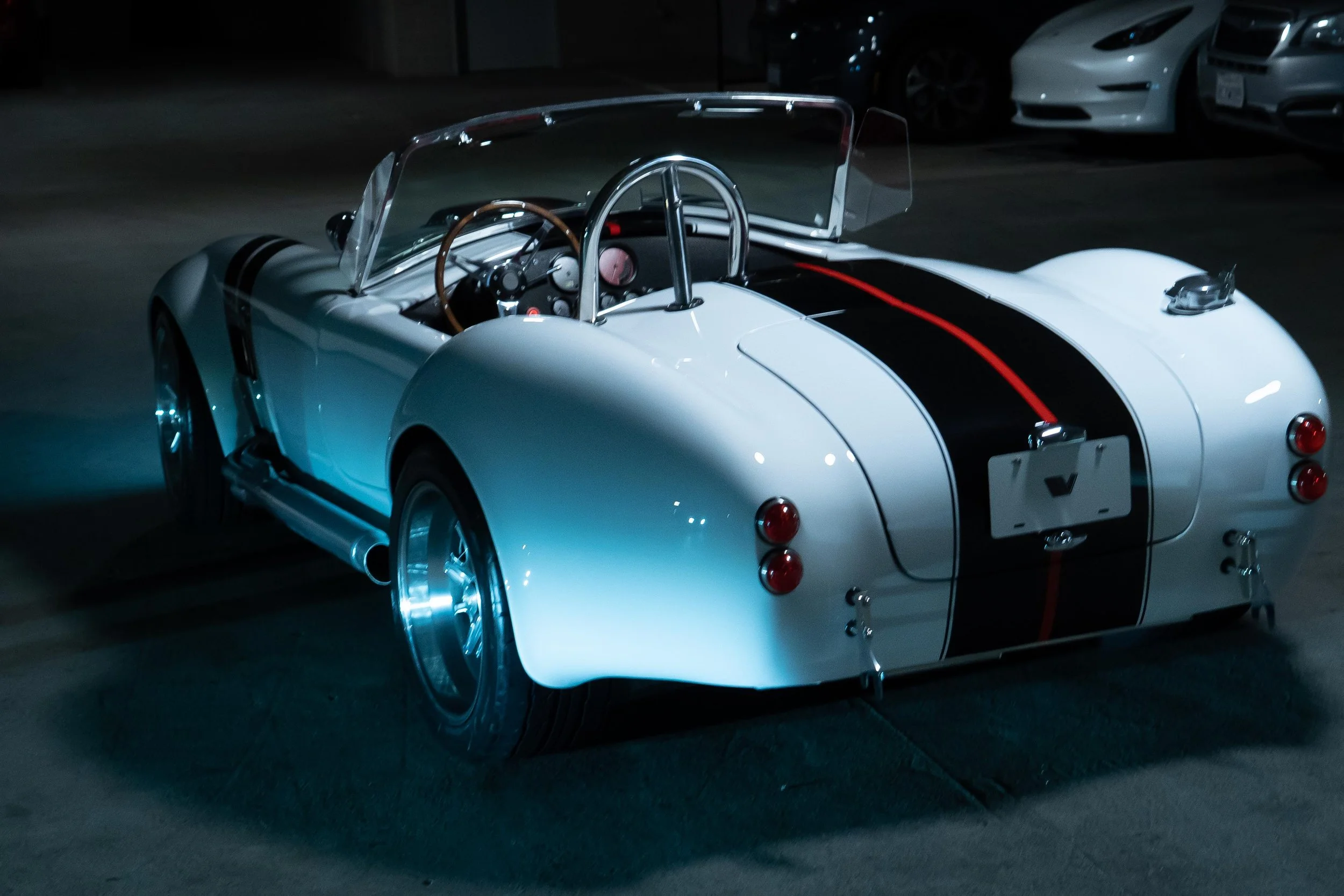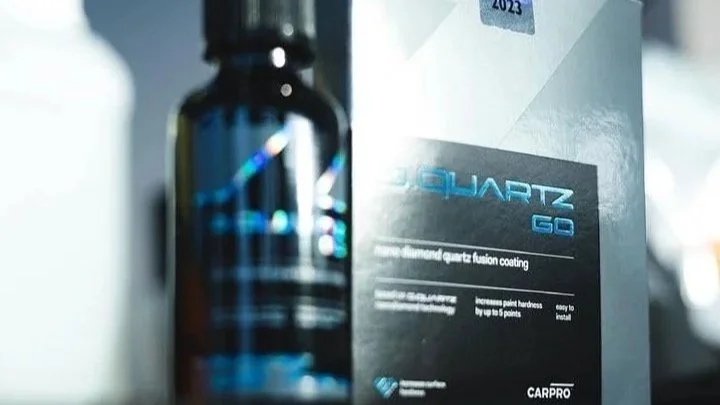Can You Polish a Ceramic Coating? The Truth About Paint Correction
By Alex B, Certified Ceramic Coating Installer | Fresh Layer Mobile Detailing
You just invested $1,000-2,500 in a ceramic coating, and now you're seeing swirl marks or scratches. Can you polish ceramic coating without destroying it? The internet gives conflicting answers, and one wrong move could strip away your expensive protection.
Here's the truth: Yes, you can polish a ceramic coating—but only under specific conditions. Polish too aggressively and you'll remove the coating entirely. Skip correction when needed and those scratches become permanent. After installing 500+ ceramic coatings in San Diego since 2018, I've seen both scenarios cost owners hundreds in reapplication fees.
The critical distinction: Maintenance polishing (gentle enhancement on healthy coating) is safe and beneficial. Correction polishing (removing damage through ceramic coating) requires removing the coating first. Confuse these two approaches and you'll damage your coating or waste your time.
Can You Polish a Ceramic Coating? The Complete Answer
The answer depends on what you mean by "polish" and what condition your coating is in.
Two Types of Polishing: Completely Different Processes
Maintenance Polishing (Safe for Ceramic Coating)
Light chemical cleaners or spray sealants
Enhances existing coating without abrasion
Removes water spots, light contamination, haze
Think: Rejuvenating the coating surface
Frequency: Every 4-12 weeks
Risk: Very low when done correctly
Correction Polishing (Removes Ceramic Coating)
Abrasive compounds that physically cut material
Used to remove scratches, swirls, or oxidation
Cuts through ceramic coating layer into clear coat
Think: Resetting the paint surface
Frequency: Only when damage appears
Risk: High—strips coating completely
The confusion: Both processes are called "polishing" but accomplish opposite goals. Maintenance polishing preserves your coating. Correction polishing removes it.
What Actually Happens When You Polish Ceramic Coating
Ceramic coating structure:
Coating thickness: 1-3 microns (0.04-0.12 mils)
Clear coat underneath: 40-60 microns (1.5-2.5 mils)
Total protection: Coating + clear coat
When you use abrasive polish:
First pass: Removes coating layer (1-3 microns)
Continued polishing: Removes clear coat (5-15 microns)
Result: Coating stripped, paint exposed
When you use maintenance products:
No abrasive action: Coating remains intact
Chemical cleaning only: Surface refreshed
Result: Coating preserved, contamination removed
Quick Decision Framework
Can you polish it?
✅ YES - Maintenance polish when:
Coating looks dull or hazy (no physical damage)
Water beading decreased but still present
Light water spots or contamination
Annual or bi-annual coating refresh
Using ceramic-safe maintenance products
❌ NO - Don't polish when:
Visible scratches or swirl marks exist (coating can't fix these)
Deep water spot etching present
Want to remove damage through coating
Using traditional abrasive compounds
Coating less than 6 months old (too new)
⚠️ REQUIRES PROFESSIONAL ASSESSMENT:
Scratches visible but unsure of depth
Coating failing (peeling, spotting)
Previous DIY correction attempts
Considering correction on coated paint
Safe Maintenance Polishing for Ceramic Coatings
Proper maintenance preserves coating performance and extends its life from 3-5 years to 5-7+ years.
What Maintenance Polishing Does
Purpose:
Removes bonded contamination (mineral deposits, fallout)
Cleans coating surface without abrasion
Restores water beading and gloss
Prepares surface for coating booster/topper
What it doesn't do:
Fix scratches or swirl marks
Remove etching or damage
Replace coating functionality
Restore failed coating
Products We Actually Use: Professional Recommendations
After maintaining 500+ ceramic coatings in San Diego, these products deliver results without damaging the coating.
Maintenance Polish (Light Enhancement Only)
CarPro Essence PLUS - $35-45 (500ml)
What it is: Ultra-fine maintenance polish specifically engineered for ceramic coatings
Purpose: Light gloss enhancement, removes haze and light water spots
Contains: SiO2-infused diminishing abrasives (coating-safe formula)
Removes: Light oxidation, water spots, minor marring (NOT scratches or swirls)
Application: Machine with soft finishing pad or hand application
Frequency: 1-2 times per year maximum, only when needed
Critical requirement: Coating must be 6+ months old (newer coatings too soft)
Our use: Annual rejuvenation before applying fresh topper layer
San Diego benefit: Removes hard water haze without stripping coating
When to use CarPro Essence Plus:
Coating looks dull or hazy despite regular maintenance
Light water spot etching visible but smooth to touch
Annual deep cleaning before reapplying coating topper
Preparing older coating (3+ years) for continued service
When NOT to use:
Coating less than 6 months old
Visible scratches or swirls present (requires full correction)
Coating already has good gloss (use booster instead)
Deep water spot etching (needs professional correction)
Application process:
Wash and decontaminate thoroughly
Work on cool surface in shade
Apply small amount to finishing pad or applicator
Work into surface with light pressure
Buff off residue with clean microfiber
Follow immediately with coating booster (CarPro Reload recommended)
Important warning: Even "coating-safe" polishes like CarPro Essence Plus can be overused or aggressive application will thin the coating over time. Use sparingly, only when a genuine need exists.
Maintenance Polishing Process
Step 1: Thorough wash (20-30 minutes) Use two-bucket method or proper pressure washing. Remove all loose dirt before any maintenance work.
Step 2: Decontamination if needed (30-45 minutes) Iron remover for orange spots, clay bar for rough texture. Only if coating feels contaminated.
Step 3: Inspect coating condition (10 minutes) Check water beading, gloss level, coating integrity. Determine if maintenance or professional help needed.
Step 4: Apply maintenance product (30-45 minutes) Spray coating booster/topper onto clean surface. Work panel by panel. Buff to high gloss with microfiber.
Step 5: Water beading test (5 minutes) Spray water on treated surface. Should bead at 100-110° contact angle. If not, coating may be failing.
San Diego Maintenance Frequency
Coastal areas (0-5 miles from ocean):
Salt air exposure accelerates coating degradation
Maintenance: Every 4-6 weeks
Focus: Iron remover + coating booster
Areas: La Jolla, Del Mar, Pacific Beach, Ocean Beach
Inland areas (5+ miles from ocean):
UV exposure primary concern (San Diego: 266 sunny days)
Maintenance: Every 6-10 weeks
Focus: pH-neutral washing + UV protection booster
Areas: Poway, Escondido, El Cajon, Santee
For more on ceramic coating care: What destroys ceramic coating
How to Fix Scratches and Damage on Ceramic Coated Paint
If your ceramic coating has scratches, you have two options: live with them or remove the coating to correct the paint.
The Hard Truth About Scratches on Ceramic Coating
Ceramic coating cannot:
Fill scratches or swirl marks
Self-heal damage (unless specific self-healing coating)
Hide existing paint defects
Be polished to remove scratches
What happened:
Scratch went through coating (1-3 microns) into clear coat
Or scratch was already in paint before coating applied
Coating cannot fix underlying paint damage
Only solution: Remove coating, correct paint, recoat
When Damage Requires Professional Correction
Minor scratches (surface level):
Visible in direct sunlight only
Don't catch fingernail
Decision: Live with it or full correction
Cost: $600-1,200 (strip coating, polish, recoat)
Moderate scratches/swirls:
Visible in multiple lighting conditions
Cover 30-70% of panel
Decision: Professional correction required
Cost: $800-1,500 (full paint correction + new coating)
Heavy damage:
Scratches catch fingernail
Swirls cover 70%+ of panels
Water spot etching present
Decision: Comprehensive correction essential
Cost: $1,200-2,500 (multi-stage correction + premium coating)
The Correction Process for Coated Paint
Step 1: Coating removal (2-3 hours) Polish with cutting compound removes ceramic layer. Must be done before any paint correction. Cannot correct through coating.
Step 2: Paint correction (4-8 hours) Compound and polish to remove scratches. Same process as uncoated paint. Multiple stages for severe damage.
Step 3: Paint prep (1-2 hours) Panel wipe removes oils. IPA wipe ensures bonding. Surface must be perfectly clean for recoating.
Step 4: Ceramic coating reapplication (2-4 hours) Apply new coating to corrected paint. Requires curing time: 24 hours minimum, 7 days ideal.
Step 5: Curing and care (7-30 days) No washing for 7 days. Avoid contaminants. Full cure takes 30 days. Water beading improves during cure.
Total time: 9-17 hours professional work Total cost: $1,200-2,500 depending on damage severity
Can You Spot-Correct Ceramic Coated Paint?
Short answer: No, not effectively.
The problem:
Polishing one panel strips coating from that panel
Creates visible line between coated/uncoated panels
Recoating single panel doesn't blend seamlessly
Professional finish requires complete vehicle recoating
Practical reality: Small isolated scratch? Live with it. Multiple panels damaged? Full correction and recoat. Attempting spot correction creates more visible problems than original damage.
San Diego Ceramic Coating Challenges
San Diego's environment creates specific challenges for ceramic coated vehicles.
Hard Water Spots on Ceramic Coating
San Diego water hardness: 12-20 grains per gallon (hard to very hard)
What happens:
Mineral deposits etch into coating surface
Creates white spots that won't wash off
Severe cases: Etches through coating into clear coat
Most common San Diego ceramic coating complaint
Prevention:
Dry vehicle immediately after washing (within 5 minutes)
Use deionized water for final rinse
Never let sprinklers hit vehicle
Maintain coating booster every 4-8 weeks
UV Degradation
San Diego UV exposure: UV index 7-11 (very high to extreme), 266 sunny days
Coating effects:
Gradual reduction in hydrophobic properties
Gloss decrease over time
Water beading angle drops from 110° to 90° to 70°
Eventually: Coating failure (3-7 years depending on maintenance)
Extended longevity: Regular maintenance with UV-protective coating boosters extends life 40-60% compared to neglected coating.
Coastal Salt Air Impact
0-2 miles from ocean:
Salt accelerates ceramic coating degradation
Etching and spotting more common
Maintenance required every 4-6 weeks
Annual maintenance cost: $200-300
Prevention:
Rinse vehicle bi-weekly minimum
Apply coating booster monthly
Iron remover every 3 months
Watch for coating failure signs
Tree Sap and Bird Droppings
Acid content: pH 3.5-5.0 (acidic enough to damage coating and paint)
Timeline:
0-12 hours: Ceramic coating provides protection
12-24 hours: Beginning to etch coating surface
24-48 hours: Etching through coating into clear coat
48+ hours: Permanent paint damage likely
Removal: Remove immediately with pH-neutral cleaner. Never let sit longer than 24 hours, even with ceramic coating protection.
5 Mistakes That Damage Ceramic Coatings
1. Using abrasive compounds for "maintenance" Traditional polish removes coating in minutes. Use only ceramic-safe maintenance products. One wrong product strips $1,500 coating.
2. Attempting scratch removal on coated paint You cannot polish through ceramic coating to fix scratches without removing coating entirely. Trying wastes time and may damage coating.
3. Washing with dish soap or harsh chemicals Strips coating gradually. Use pH-neutral ceramic wash only. Dish soap can reduce coating life 40-50%.
4. Letting water spots sit San Diego hard water etches coating within 24-48 hours. Dry immediately after rain or washing. Etched coating requires professional correction.
5. Over-maintaining with too many products More isn't better. Excessive layering of different coating boosters can cause buildup and reduce performance. Follow one product system consistently.
FAQ: Polishing Ceramic Coatings
-
No. Polishing abrasive enough to remove scratches will remove the ceramic coating first. Ceramic coating is 1-3 microns thick. Scratches penetrate deeper into the 40-60 micron clear coat underneath. You must remove the coating, correct the paint, then reapply coating.
-
Depends on the product. Abrasive polish (compound or cutting polish) removes ceramic coating in minutes. Maintenance polish (ceramic coating booster/topper) is safe and enhances coating without removal.
-
Every 1-2 weeks: Wash with pH-neutral ceramic shampoo Every 4-10 weeks: Apply ceramic coating booster/topper (CarPro Reload, Gyeon Cure) Every 3-6 months: Iron remover if needed, coating inspection Immediately: Remove bird droppings, tree sap, water spots
-
No. Ceramic coating cannot be "buffed out" or polished to remove scratches. The coating is too thin (1-3 microns) and too hard. Scratches in ceramic coating are actually scratches through the coating into the clear coat underneath.
-
Surface spots: Ceramic water spot remover or white vinegar solution (90-100% success)
Light etching: Professional polishing compound applied carefully (70-85% success, may thin coating)
Deep etching: Strip coating, polish paint, recoat ($1,200-2,000)
-
With proper maintenance: 5-7 years With minimal maintenance: 3-5 years With neglect: 2-3 years
San Diego factors: Intense UV (266 sunny days) and hard water (12-20 grains/gallon) reduce coating life 20-30% compared to ideal conditions. Regular maintenance extends life significantly.
Bottom Line: Maintenance Yes, Correction No
You can polish a ceramic coating, but only for maintenance—not correction.
Key principles:
Maintenance polishing (ceramic boosters) = Safe and beneficial
Correction polishing (abrasive compounds) = Strips coating completely
Scratches require: Strip coating → correct paint → recoat
San Diego conditions demand more frequent maintenance
Decision guide:
Coating looks dull = DIY maintenance polish ($20-30 products)
Light water spots = DIY ceramic water spot remover ($25-40)
Scratches/swirls/etching = Professional correction + recoat ($1,200-2,500)
Prevention is cheapest: Regular DIY maintenance ($150-250/year) prevents expensive corrections ($1,200-2,500) and extends coating life 40-60%.
Professional Ceramic Coating Services in San Diego
Need help with coating maintenance or damage?
Fresh Layer Mobile Detailing specializes in ceramic coating maintenance and correction. Free coating assessment with every service.
Services:
Maintenance Package | $150-250 – Professional decontamination, coating booster, protection
Coating Correction | $1,200-2,000 – Strip coating, paint correction, ceramic recoating
Premium Correction | $1,800-2,500 – Multi-stage correction, premium coating system
Coating Assessment | Free – Inspect coating condition, recommend service level
Why Fresh Layer: Certified ceramic coating installers • Mobile service to your location • 500+ coatings installed since 2019 • Honest assessments (no unnecessary upselling) • Warranty-backed work
Areas: La Jolla, Pacific Beach, Del Mar, Downtown, Carmel Valley, Poway, Chula Vista—all San Diego County
Call (619) 874-4115| Book Online










